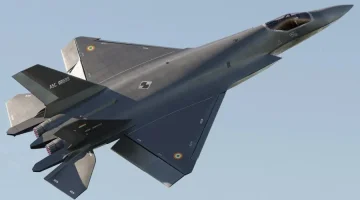- Views: 1K
- Replies: 12

India has secured observer status in the €7.1 billion Eurodrone program, a multinational European initiative to develop advanced medium-altitude long-endurance (MALE) unmanned aerial vehicles (UAVs). This significant development, overseen by the Organisation for Joint Armament Cooperation (OCCAR), underscores India's growing prominence in international defence collaborations.
The Eurodrone project, led by major European defence contractors such as Airbus, Leonardo, and Dassault Aviation, aims to reduce Europe's reliance on non-European drone technology. The primary focus is on enhancing intelligence, surveillance, target acquisition, and reconnaissance (ISTAR) capabilities.
India's observer status provides valuable access to cutting-edge drone technology and paves the way for potential future acquisitions to bolster its aerial surveillance and reconnaissance capabilities.
This strategic move positions India for potential participation in the development of 6th generation fighter jets. Experts suggest that India should consider seeking observer status in prominent 6th generation fighter jet programs, such as the UK-led Global Combat Air Programme (GCAP), which includes Japan and Italy, and the Future Combat Air System (FCAS), a collaboration between Germany, France, and Spain.
Observing these programs would offer India several advantages. It would provide firsthand exposure to cutting-edge aviation technologies, including stealth capabilities, artificial intelligence integration, and advanced sensor systems, all critical for future air warfare.
Participation would also foster deeper defence ties with Western allies, potentially leading to technology transfer and co-development opportunities. Such alliances are increasingly important in the current geopolitical landscape, particularly given strategic considerations related to China.
Furthermore, observer status allows India to assess the financial and technological complexities of these ambitious programs without the immediate commitment of full participation. This knowledge would be invaluable for India's own indigenous defence projects, such as the Advanced Medium Combat Aircraft (AMCA), potentially accelerating its development and integration of 6th generation technologies.
While observer status offers a strategic vantage point for future procurement or co-development decisions, it also grants India the flexibility to thoroughly evaluate the technology, cost-effectiveness, and strategic benefits of these advanced aircraft before committing substantial resources.
Exposure to diverse methodologies, design philosophies, and technological advancements within these programs could significantly enhance India's aerospace innovation capabilities. This would benefit not only military applications but also civilian aviation technology.
India's involvement in these high-profile defence initiatives holds immense strategic importance. Building on the momentum gained from the Eurodrone program, the next logical step is to engage with manned combat aircraft incorporating future technologies. By becoming an observer in 6th generation fighter jet programs, India can maintain pace with global defence advancements and ensure its ability to acquire or adapt these technologies as needed.

